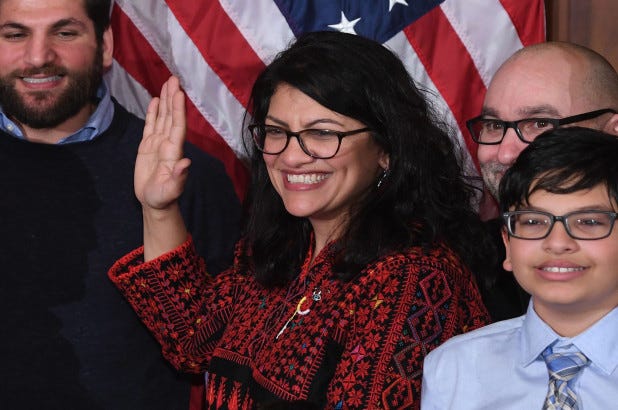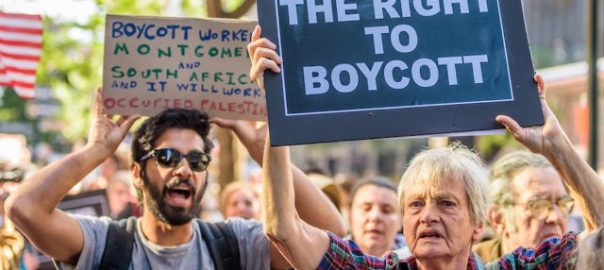By Kent R. Kroeger (Source: NuQum.com; January 10, 2019)
I admire Harvard Law Professor Alan Dershowitz and have for a long time.
Most recently, Dershowitz is one of the few Democrats (perhaps only) that sees clearly the inconsistencies and dangers intrinsic to the Democratic Party’s ad hominem obsession with the Robert Mueller-led Trump-Russia investigation.
For example, on whether President Donald Trump’s potential firing of Mueller would constitute an impeachable offense, Dershowitz says, “ “Firing the special counsel would not be impeachable offense, because it wouldn’t be a crime. The president would have authority to do it but it would be politically very damaging to do it.”
It is a direct threat to our democracy to criminalize political differences, Dershowitz argues objectively in his 2017 book, “Trumped Up: How Criminalization of Political Differences Endangers Democracy.”
So why does Dershowitz suddenly disabuse himself from his own beliefs when discussing the legality of anti-Boycott, Divestment and Sanctions (BDS) laws in the U.S.?
A growing number of U.S. states that are passing anti-BDS laws that, among their provisions, prevent states from investing in or hiring companies that refuse to engage in commerce with Israel and boycott Israel or persons doing business in Israel or territories controlled by Israel. The U.S. Congress is debating its own anti-BDS legislation.
For anyone unfamiliar with the BDS movement, here is summary:
BDS stands for Boycott, Divestment and Sanctions. Among its tactics, BDS targets businesses and organizations deemed complicit in Israel’s known and alleged human rights violations against Palestinians. While Israel’s supporters charge the BDS movement as being inherently anti-Semitic and racist, BDS organizers contend their movement is comparable to the anti-apartheid movement which helped to isolate South Africa globally and end white rule.
In defending the legality of these laws, Dershowitz makes this distinction: “So long as these anti-BDS statutes do not prohibit advocacy of such boycotts, but focus instead on the commercial activities themselves — namely the economic boycotts — there are no serious freedom of speech concerns. The First Amendment protects freedom of speech, not freedom to discriminate economically based on invidious classifications.”
BDS organizers respond, flatly, anti-BDS laws violate First Amendment rights. “A boycott is an important and powerful form of expressive association protected by the First Amendment. Speech in support of a boycott encompasses the practice of people sharing common views banding together to achieve a common end, a practice deeply embedded in the American political process,” according to a legal brief prepared by the American Civil Liberties Union (ACLU) of Iowa.
“By this collective effort, individuals can make their views known when, individually, their voices would be faint or lost. The Supreme Court has held that economic boycotts are protected by the First Amendment. *NAACP v. Claiborne Hardware Co.*, 458 U.S. 886 (1982).”
At the risk of over-simplifying Dershowitz’ argument, his claim is that boycotts are not protected speech if they are premised on bigotry — such as anti-Semitism — instead of specific actions (e.g., human rights violations).
That is the strongest aspect of Dershowitz’ argument in support of anti-BDS laws.
“Americans of any religion have the right to support Israel, and most do, without being accused of disloyalty, just as Americans of any religion have the right to support the Palestinian cause,” argues Dershowitz. “It is both bigoted and hypocritical to apply a different standard to Jews who support Israel than to Muslims who support the Palestinian cause.”
But, in basically restating Israeli politician Natan Sharansky’s three D’s of anti-Semitism — delegitimization, demonization, and double standards — Dershowitz is implicitly acknowledging not all criticisms of Israel are rooted in anti-Semitism.
Yet, the entire BDS movement gets tagged as such by Dershowitz, as he claims its mission, by definition, is anti-Semitic.
Dershowitz writes: “Congress is considering legislation dealing with companies that boycott only the nation state of the Jewish people, and only Jews within Israel. To single out only the ‘Jew among nations,’ and not the dozens of far more serious violators of human rights is bigotry pure and simple, and those who support BDS only against Israel are guilty of bigotry.”
It is here where Dershowitz starts going off the rails.
“What is unacceptable (about BDS) is discriminatory actions, and nothing can be more discriminatory than singling out an ally with one of the best records of human rights in the world for a boycott, while continuing to do business with the worst human rights offenders in the world,” writes Dershowitz. “Many of the same bigots who support BDS against Israel, oppose boycotting Cuba, Iran, China, Russia, Venezuela, Syria, Saudi Arabia and other human rights violators. Legislation designed to end such discriminatory actions would be constitutional, if it did not prohibit advocacy.”
And, yet, according to Dershowitz, who in other domains of American law and policy understands the sanctity of political differences, wants to criminalize an economic boycott of our close ally, Israel.
In making his argument, Dershowitz ignores the fundamental difference between Israel and countries like Cuba, Iran, Russia, Syria and Venezuela (where the U.S. has imposed sanctions). The former is an ally. The politics often demand we hold our allies to different human rights standards than our adversaries.
That Saudi Arabia could be called a close American ally and also be one of the world’s worst human rights violators (infinitely worse than Israel) is shocking.
If there is a double standard at play, it is not the BDS movement targeting Israel, it is that we don’t put as much pressure on Saudi Arabia to change their behavior.
Criticizing and boycotting Israel for its treatment of the Palestinian people in the occupied territories is entirely rooted in politics. Such actions don’t delegitimize the State of Israel. They don’t demonize the Israelis. If anything, it contrasts the higher ideals of individual Israelis with the morally inconsistent actions of their government.
And, finally, the BDS movement is not engaged in a double standard. For one, there is nothing in the original BDS charter stating that what Israel is doing to the Palestinians is wrong, but if other countries are doing it to a similarly aggrieved group, fine. That would be a double standard. The BDS movement is under no obligation to address every human rights violation across all nations. The BDS was started by Palestinians to exclusively address Palestinian grievances with Israel. Period.
But because some BDS organizers and supporters are vocally critical of Israel yet silent (or even supportive) of other nations that commit far worse human rights violations, Dershowitz feels comfortable outlawing their specific goal of putting economic pressure on Israel to change its policies regarding the Palestinians.

One of Dershowitz’ targets for this criticism is Michigan Representative Rashida Tlaib, who, to the best of my knowledge, has never voiced support for human rights violations in Cuba, Iran, China, Russia, Venezuela, Syria, Saudi Arabia, or any other country.
In fact, some Palestinian activists have complained that Tlaib is not sufficiently anti-Israel and had, at one point, accepted the endorsement of the political action committee J Street, an Israel lobby group opposed to the BDS.
Prior to the 2018 midterm elections, Ali Abunimah, a writer for The Electronic Intifada, wrote: “Rashida Tlaib is endorsed and supported by the liberal Zionist Israel lobby group J Street through its political action committee JStreetPAC.” [That endorsement was ultimately withdrawn when Tlaib stated her support for a One-State Solution to the Israeli-Palestinian conflict.]
Abunimah was particularly critical of Tlaib’s public statements about Israel during the 2018 campaign.
“We need to be honest about the dehumanization on both sides, frankly,” Tlaib told The Washington Post. “And more importantly, we need to be not choosing a side.”
“Is Tlaib serious that we should be neutral and not ‘choose a side’ when it comes to Israel’s brutal military occupation, colonization and apartheid in her parents’ homeland?” wrote Abunimah.
Though she is excessively anti-Trump, by any reasonable standard, Tlaib is no bigot or anti-Semite. [Palestinians are Semites, by the way, but that is an argument for another day.]
Nonetheless, Dershowitz uses her as his chief antagonist in promoting his transitive logic that the BDS is inherently anti-Semitic, therefore, if you support the BDS, you are anti-Semitic.
Dershowitz is engaging in the ‘guilt by association’ tactic that has become hard-coded into the national political dialogue.
Any suggestion Tlaib is an anti-Semite is an ugly slur unsupported by evidence. Its beneath Dershowitz’ otherwise clear-eyed perspective on American and Israeli politics to suggest as much.
- K.R.K.
An example of a state-level anti-BDS law:
https://www.legis.iowa.gov/legislation/BillBook?ba=HF%202331&ga=86
